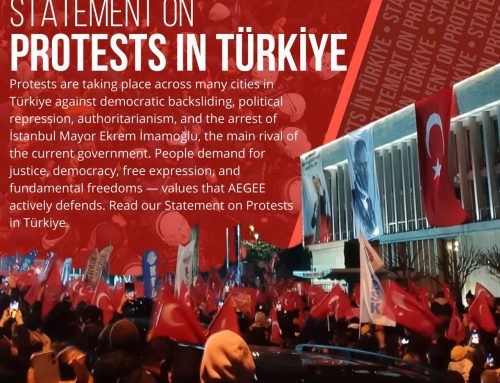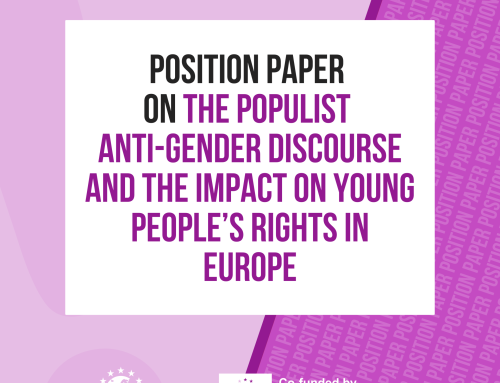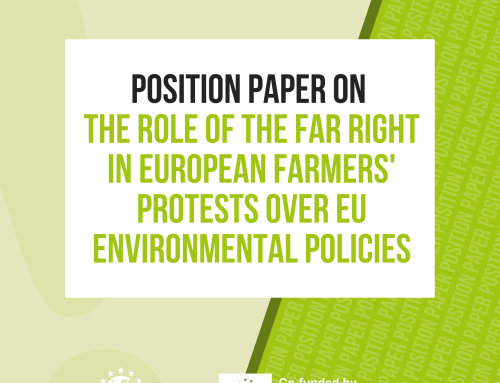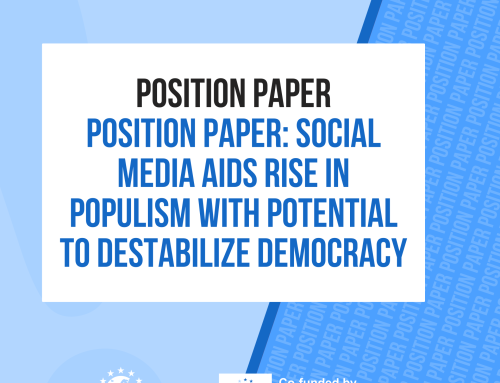Recently, the European Commission issued the White Paper “Roadmap to a Single European Transport Area –Towards a competitive and resource efficient transport system”, outlining the strategy for transport in the EUuntil 2050 and setting ten goals for a competitive and resource efficient transport system.
The European Students’ Forum – AEGEE welcomes the White Paper. As constant promoters of mobility around the continent andactive travellers, we would for sure benefit from interconnecting passengerinformation systems and from having all major airport hubs linked via a railwaynetwork. Being a pan-European network with members in all parts of Europe, weare especially happy about the extension and adaption of eastern and westernEuropean transport systems.
Most of all, we consider it of the utmostimportance and appreciate the plan to decrease emissions by banning conventionally-fuelledcars from big cities, shifting medium distance passenger and freight journeysrail and waterborne transport andencouraging innovation for new fuel types and new engines.
However, we believe the time frame too wide.
Manos Valasis, President of AEGEE-Europe, said: “Even if the aims of the white paper are reached, that will happen in 2050. In 2050, all people considered young at the moment will be at the sunset of their life, or even after that. By that time, in the best case scenario, the emissions will have been reduced by 40%. Not the pollution, the emissions. And this is certainly not the world we want our children and grandchildren to inherit from us.”
The International Energy Agency calculates that we have reached the Peak Oil and from now on, prices of petrol derivates will increasefurther and further. We should therefore take measures to decrease the Europeaneconomy dependence on all carbon-based energy as soon as possible.
Alternative fuelled cars are already available, andwaiting for encouraging policies to become more popular. The average life span of cars in Europe isaround 10-12 years, so brave decisions now can have a great impact. There is noneed to wait until 2050 to ban polluting cars from urban centres.
Already this March, 42,2% of all energy consumed in Spain was from renewable sources, according to Red Eléctrica de España1. “The solarindustry skyrocketed last year with around 7,400 MW of solar capacities beinginstalled in 2010. This means the new solar capacity installed in 2010 wasalmost twice as high as that of 2009”, says Matthias Kurth, President of Bundesnetzagentur. However, “The actual expansion in 2010 is way belowthe predicted increase of 9,500 MW.” states the same announcement. We can also see in the above two examples that on theone hand, there is huge room for improvement and on the other hand, both strongand weak economies are able to support such actions.
Therefore,the European Students’ Forum – AEGEE calls the European Commission not to “prepare appropriate legislative proposals in the next decade with key initiatives to beput forward”, but to take action now that will allow us toachieve the goals by 2020 instead of 2050.
It is already late for consultations. It is time to take immediate action.
Let’s pass the planet to the future generations at least at the same status in which we received it.
1 http://www.ree.es/ingles/sala_prensa/web/notas_detalle.aspx?id_nota=180





